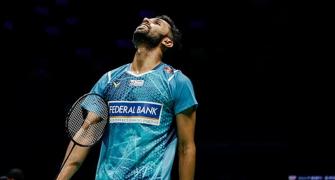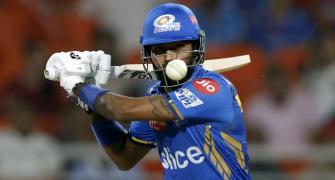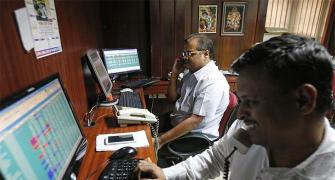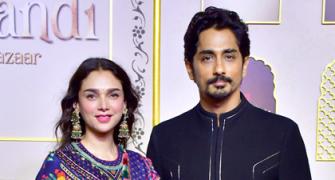India's foremost grand strategist shaped policy from the outside, seeking to enhance India's power without seeking any for himself, says Sanjaya Baru
His voice was faint, almost conspiratorial. "Have you heard Obama's 'Sputnik moment' speech?" he asked. "This is what I have been saying. But America needs India to make the next technological leap. This is an opportunity for us to work together."
I asked him if he would write a column. "I cannot," he whispered, "I am not supposed to even talk. Don't tell anyone I called. I am banned from talking or writing. You know my views. You write."
That was a guru's instruction. I told him I was travelling and would come and see him on my return. He passed away before I could.
Krishnaswamy Subrahmanyam (1929-2011) -- alias Subbu, K Subs, Bomb Mama -- India's foremost grand strategist, author of the Indian nuclear doctrine, architect of a yet to be built Indian National Defence University, advisor to prime ministers, mentor to several generations of students of defence and security studies, spook, columnist, debator extraordinaire, etc etc had a thinking man's brain that was active till the end. He died on February 2, 2011 after battling cancer for a decade.
In his 'State of the Union' speech of January 25, 2011, United States President Barack Obama recalled how the US was rudely awakened by Soviet Union's technological leap forward with the launch of the Sputnik and this enthused the US to invest in research and education, helping it not just to "surpass the Soviets" but to "unleash a wave of innovation that created new industries and millions of new jobs".
"This is our generation's Sputnik moment," President Obama said, drawing attention to the competition from China in the field of science and technology, and added, "in a few weeks, I will be sending a budget to Congress that helps us
invest in biomedical research, information technology, and especially clean energy technology -- an investment that will strengthen our security, protect our planet and create countless new jobs for our people."
The column Subrahmanyam had in mind was in fact a variation of the one he wrote for Business Standard (November 18, 2009) on the eve of Prime Minister Manmohan Singh's state visit to the United States in November 2009. He had written then: "Economic recovery after the financial crisis will be marked by the emergence of new, innovative technologies. Indo-US collaboration and cooperation in these areas may lead to cost reductions and creation of new markets. In other words, India is in a position to help sustain US pre-eminence in technological and economic spheres. Unlike in 2005, this time India is in a position to offer the US a partnership of mutual benefit, which will serve both Indian and US national interests and also serve the cause of democracy. Just as the Sino-US economic partnership of the past three decades benefited both countries, till the recent economic crisis set in, and aided China's growth, an Indo-US economic and social partnership can also be of mutual benefit to both democracies."
Subrahmanyam saw the India-US civil nuclear energy agreement as a step towards eliminating the high-tech barriers that the US had erected against India so that the two democracies could work together in the knowledge economy. As a strategic visionary, Mr Subrahmanyam came to recognise early that economic competitiveness and technological competence lie at the heart of national power in the modern world.
In his foreword to my book (Strategic Consequences of India's Economic Performance, 2006), he wrote, "A globalised economy, with this degree of interdependence among nations, and in a balance of power strategic system, has not existed before; at least not in the industrial age. The world did not have nuclear weapons and missiles that deterred outbreak of war among major powers. Nor have we a precedent to a world where knowledge will be the currency of power. The opposition to India's enhancement of its relationship with the US comes largely from people who are risk averse."
I must acknowledge here a critical role that Subrahmanyam played in saving the India-US civil nuclear energy cooperation agreement in March 2008. After months of trying to get the Left Front on board, the Congress party had virtually given up on the deal. On February 20, 2008 the chairman of the US Senate Foreign Relations Committee, Senator Joseph Biden (a leader of the Democratic Party and now US vice-president), met the prime minister and advised him to "conclude the nuclear deal by July-end to ensure that the US Congress approves it before the presidential election".
Biden was sure that a Democrat would be the next US president and was also sure that it was "highly unlikely that the next president would be able to present the deal in the present format".
I found the PM most distraught because it appeared he had little political support from his party and government to go forward. Even his closest aides started advising him to put the initiative on the back burner and not risk a political crisis.
I then took the initiative, without the PM's authorisation, to reach out to Subrahmanyam to get him to build a constituency of support for the deal through the media. His voice would be heard with respect even within the government and the Congress party. He wrote a column Will the nuclear deal finally go ahead? on March 16, 2008, in which he warned the Congress against the perfidy of the Left when it comes to foreign policy.
I believe Subrahmanyam's solid backing for the nuclear agreement at a critical moment played a vital role in reviving the issue and encouraging the PM to take a tough stand. He had played a similar role, using the media, holding the Gujral government back from voting in favour of the Comprehensive Test Ban Treaty in 1996.
Subrahmanyam was a true Bharat Ratna. He shaped policy from the outside, seeking to enhance India's power without seeking any for himself. His views will continue to shape India's grand strategy as India's economy and knowledge power grow.






